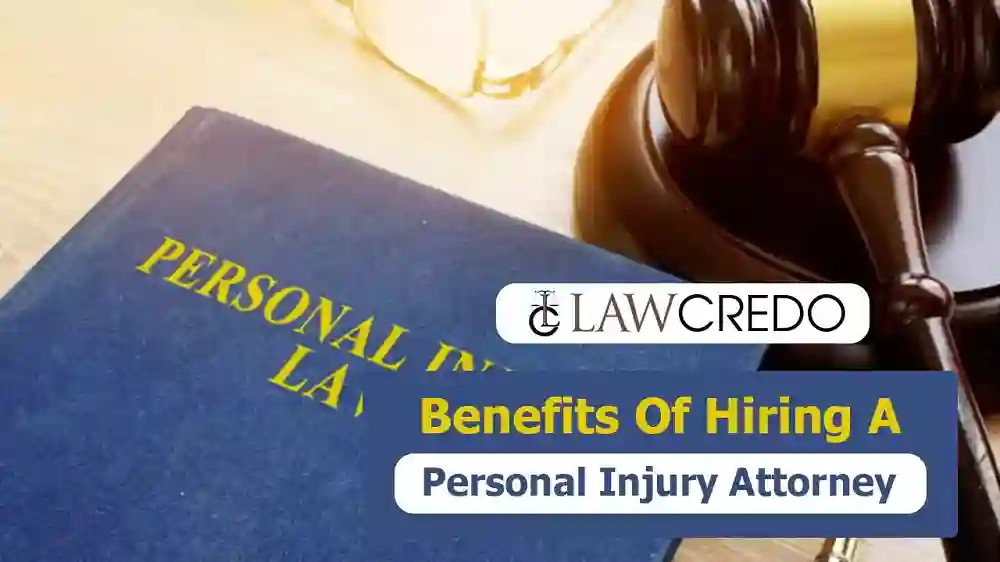Hey there, folks! If you’ve ever been injured due to someone else’s negligence, you know that the road to justice can be a winding and complex one. That’s where personal injury lawyers come in – they’re your allies in navigating the legal process to ensure you receive the compensation you deserve. In this article, we’ll take a deep dive into what you can expect when hiring a personal injury lawyer, from the initial consultation to the resolution of your case.
Chapter 1: The Initial Consultation
Your journey with a personal injury lawyer typically begins with an initial consultation. During this meeting, you’ll have the opportunity to discuss your case and share all the relevant details with the attorney. It’s a two-way street – you get to know the lawyer, and they assess the merits of your case.
Chapter 2: Case Evaluation
After the initial consultation, your personal injury lawyer will conduct a thorough evaluation of your case. They will review the evidence, gather additional information if necessary, and assess the strength of your claim. This evaluation is crucial in determining the best course of action moving forward.
Chapter 3: Contingency Fees
One of the significant advantages of hiring a personal injury lawyer is that they often work on a contingency fee basis. This means you won’t have to pay upfront legal fees. Instead, your lawyer will only be compensated if they successfully resolve your case, taking a percentage of the final settlement or court award.
Chapter 4: Investigation
Once your lawyer decides to take on your case, they’ll kickstart the investigation phase. This involves gathering evidence, interviewing witnesses, and examining relevant documents. The goal is to build a strong case that supports your claim for compensation.
Chapter 5: Negotiations with Insurance Companies
Many personal injury cases are settled through negotiations with the at-fault party’s insurance company. Your lawyer will be your advocate in these negotiations, working diligently to secure a fair settlement that covers your damages, such as medical expenses, lost wages, and pain and suffering.
Chapter 6: Filing a Lawsuit
If negotiations don’t lead to a satisfactory resolution, your lawyer may recommend filing a lawsuit. This is the point at which your case officially enters the court system. Your attorney will prepare the necessary legal documents, serve them to the defendant, and commence the litigation process.
Chapter 7: Discovery
During the litigation phase, both sides engage in a process called “discovery.” This involves exchanging information, documents, and evidence related to the case. Depositions may be taken, and witnesses may be interviewed. Discovery is a critical step in building a strong case and understanding the opponent’s arguments.
Chapter 8: Pretrial Motions and Hearings
Before your case goes to trial, there may be pretrial motions and hearings. These are legal proceedings where both parties argue specific issues related to the case. Your personal injury lawyer will represent your interests and make legal arguments on your behalf.
Chapter 9: The Trial
If your case proceeds to trial, your personal injury lawyer will prepare extensively for the courtroom battle. They’ll present your case to a judge and jury, calling witnesses, introducing evidence, and making persuasive arguments to seek a favorable verdict. Trials can be complex and time-consuming but are sometimes necessary to achieve justice.
Chapter 10: Settlement Negotiations During Trial
Even during a trial, settlement negotiations can continue. In some cases, the parties may reach an agreement before the court renders a verdict. Your lawyer will keep you informed throughout this process, advising you on the pros and cons of accepting a settlement versus continuing with the trial.
Chapter 11: Verdict and Judgment
In the event of a trial, the judge or jury will render a verdict based on the evidence presented. If the verdict is in your favor, a judgment will be entered, and the court will determine the amount of compensation you’re entitled to receive. If the verdict goes against you, your lawyer may explore options for appealing the decision.
Chapter 12: Post-Trial Actions
After the trial, there may be post-trial actions, such as appealing an unfavorable verdict or enforcing a judgment. Your personal injury lawyer will continue to represent your interests in these proceedings to achieve the best possible outcome.
Chapter 13: Conclusion and Compensation
The legal process can be lengthy and complex, but your personal injury lawyer is there to guide you every step of the way. Once your case is successfully resolved, you’ll receive compensation for your damages, allowing you to move forward with your life.
Conclusion
In conclusion, hiring a personal injury lawyer can be a game-changer when you’ve been injured due to someone else’s negligence. The legal process may seem daunting, but with the right attorney by your side, you can navigate it successfully. From the initial consultation to the resolution of your case, your lawyer will work tirelessly to ensure you receive the compensation you deserve. So, if you find yourself in need of legal assistance after an injury, don’t hesitate to seek the expertise of a personal injury lawyer – they’re your advocates for justice.
